hello!
I am sorry to hear about your pup. First things first. we can manage pain (or at least we should be doing everything in our power to try). If the pain isnt subsiding within a day or two call the vet and ask to be seen again. There is a litany of pain medications available. Often we dont provide enough, or the correct combination at the first vist.
Second, we need a diagnosis, at least a tentative diagnosis to try to understand what course of treatment options are needed and what to expect from each option, or as time progresses.
third, every patient should be offered a referral to a specialist sooner versus later.
thats where i would start at this point with your dog.
krista






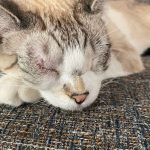

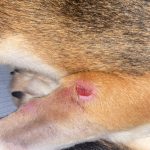
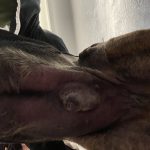
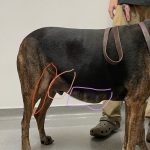
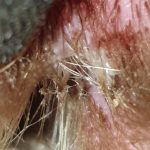


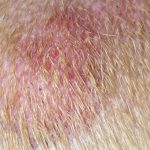
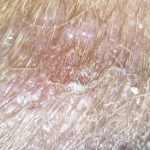
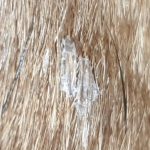

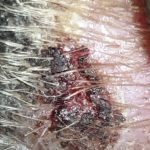

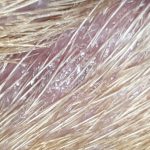
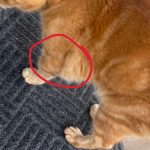
Hello,
Well I have to say I haven’t had this experience with any of my patients. So we are in uncharted waters here.
I suppose the answer is do you have to spend a whole bunch of money to try to find the reason for an issue that doesn’t really seem to be affecting your cat? The answer is both yes, because in my experience it can be really hard to know if this is truly causing your cat discomfort because they hide it so weep that often you don’t realize it was a problem until it’s gone and your cat acts happier. The answer is also no. If you can’t afford what the specialist offers (as many cannot) then it is acceptable to just go on as you have been.
But my preferred answer is to find another vet who isn’t afraid to do an exploratory surgery and look for a fistula or draining tract that might be the solution to the problem. Keep looking there are vets out there who are very proficient in surgery and might be willing to try.
Keep me posted. God luck.